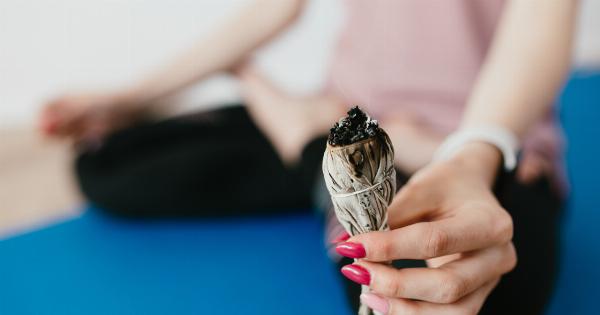Hemorrhoids, also known as piles, are swollen veins in the lower rectum and anus that can cause discomfort, pain, and itching.
They can be an unpleasant and bothersome condition, but the good news is that they can often be prevented or managed through a healthy diet and regular exercise. In this article, we will explore how diet and exercise can help prevent hemorrhoids and improve overall colon health.
The Importance of Diet
Diet plays a crucial role in preventing hemorrhoids. A balanced and fiber-rich diet can help regulate bowel movements, prevent constipation, and reduce the strain on the rectal veins. Here are some dietary guidelines to follow:.
1. Increase Fiber Intake
Fiber is an essential nutrient that adds bulk to the stool and aids in its smooth passage through the digestive tract. This helps to prevent constipation, a common cause of hemorrhoids.
Include more whole grains, fruits, vegetables, legumes, and nuts in your diet to increase your fiber intake. Aim for at least 25-30 grams of fiber per day.
2. Drink Plenty of Water
Staying hydrated is essential for maintaining healthy bowel movements. Water helps soften the stool, making it easier to pass without straining. Aim to drink at least 8 glasses of water per day.
Additionally, limit the consumption of caffeine and alcohol, as these can contribute to dehydration.
3. Avoid Processed Foods
Processed foods are often low in fiber and high in refined sugars and unhealthy fats. These can lead to constipation and poor digestion. Opt for natural, whole foods instead, such as fruits, vegetables, whole grains, and lean proteins.
4. Include Probiotics
Probiotics are beneficial bacteria that support healthy digestion. They can help promote regular bowel movements and prevent hemorrhoids. Consider including probiotic-rich foods in your diet, such as yogurt, kefir, sauerkraut, and kimchi.
The Role of Exercise
Regular physical activity is not only beneficial for overall health but also plays a significant role in preventing hemorrhoids. Exercise helps improve blood circulation, reduce pressure on the veins, and promote healthy bowel movements.
Here are some exercises that can help prevent hemorrhoids:.
1. Cardiovascular Exercises
Aerobic exercises, such as brisk walking, jogging, swimming, and cycling, get your heart rate up and improve blood circulation. Aim for at least 30 minutes of cardiovascular exercise most days of the week.
2. Kegel Exercises
Kegel exercises strengthen the pelvic floor muscles, which can help improve blood flow to the rectal area and reduce the risk of hemorrhoids. To perform Kegel exercises, squeeze the muscles you would use to stop the flow of urine.
Hold for a few seconds, then release. Repeat this exercise several times a day.
3. Yoga
Yoga poses, such as the child’s pose, the knee-to-chest pose, and the cat-camel pose, can help promote healthy digestion, reduce constipation, and relieve pressure on the rectal area. Incorporate yoga into your routine for better colon health.
Additional Tips
In addition to a healthy diet and regular exercise, here are some additional tips to prevent hemorrhoids:.
1. Avoid Straining
Avoid straining during bowel movements, as this can lead to increased pressure on the rectal veins. Take your time and allow stools to pass naturally.
2. Maintain Proper Toilet Habits
Do not linger on the toilet for extended periods. Sitting for too long can put unnecessary pressure on the rectal area. Also, avoid using excessive force when wiping after bowel movements.
3. Practice Good Hygiene
Keep the anal area clean and dry. Gently clean the area with mild soap and warm water after bowel movements. Avoid using harsh or scented toiletries, as these can irritate the skin.
4. Manage Weight
Maintain a healthy weight to reduce the strain on the rectal veins. Excess weight can contribute to the development of hemorrhoids.
Conclusion
Preventing hemorrhoids is possible with the right diet and exercise routine.
By adopting a fiber-rich diet, staying hydrated, and engaging in regular physical activity, you can maintain colon health and reduce the risk of developing this uncomfortable condition. Remember to consult with a healthcare professional if you have persistent symptoms or concerns.





























